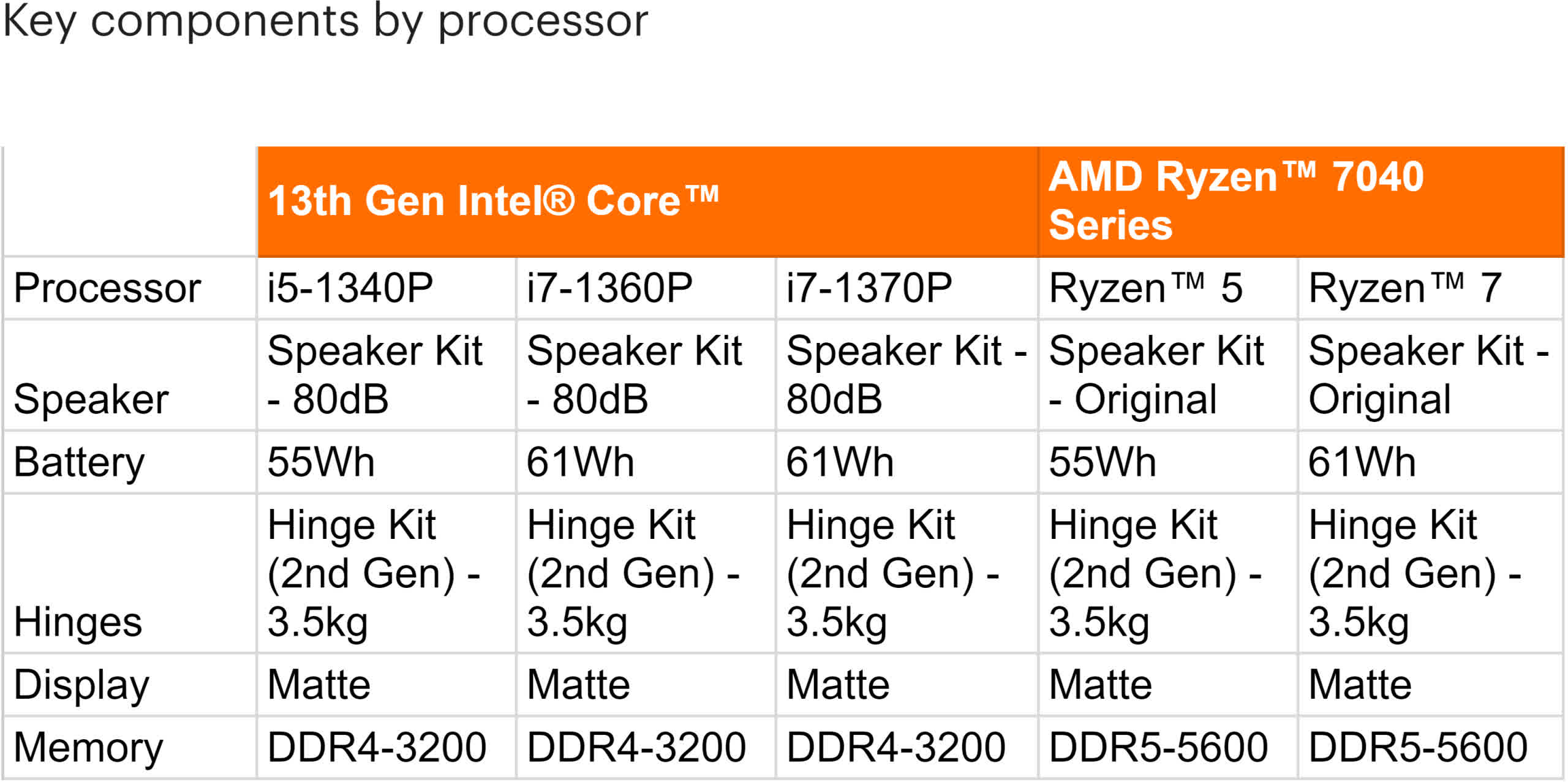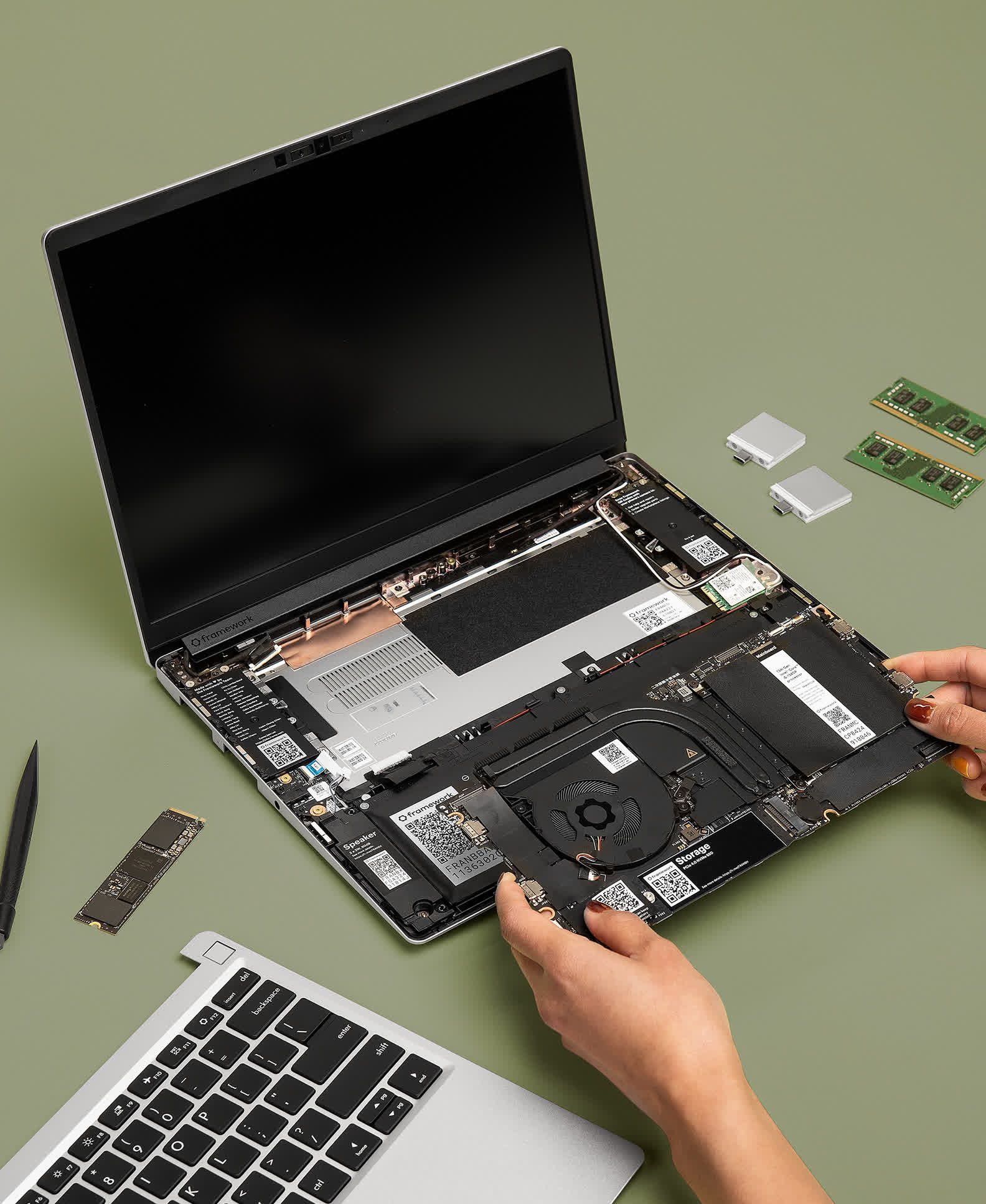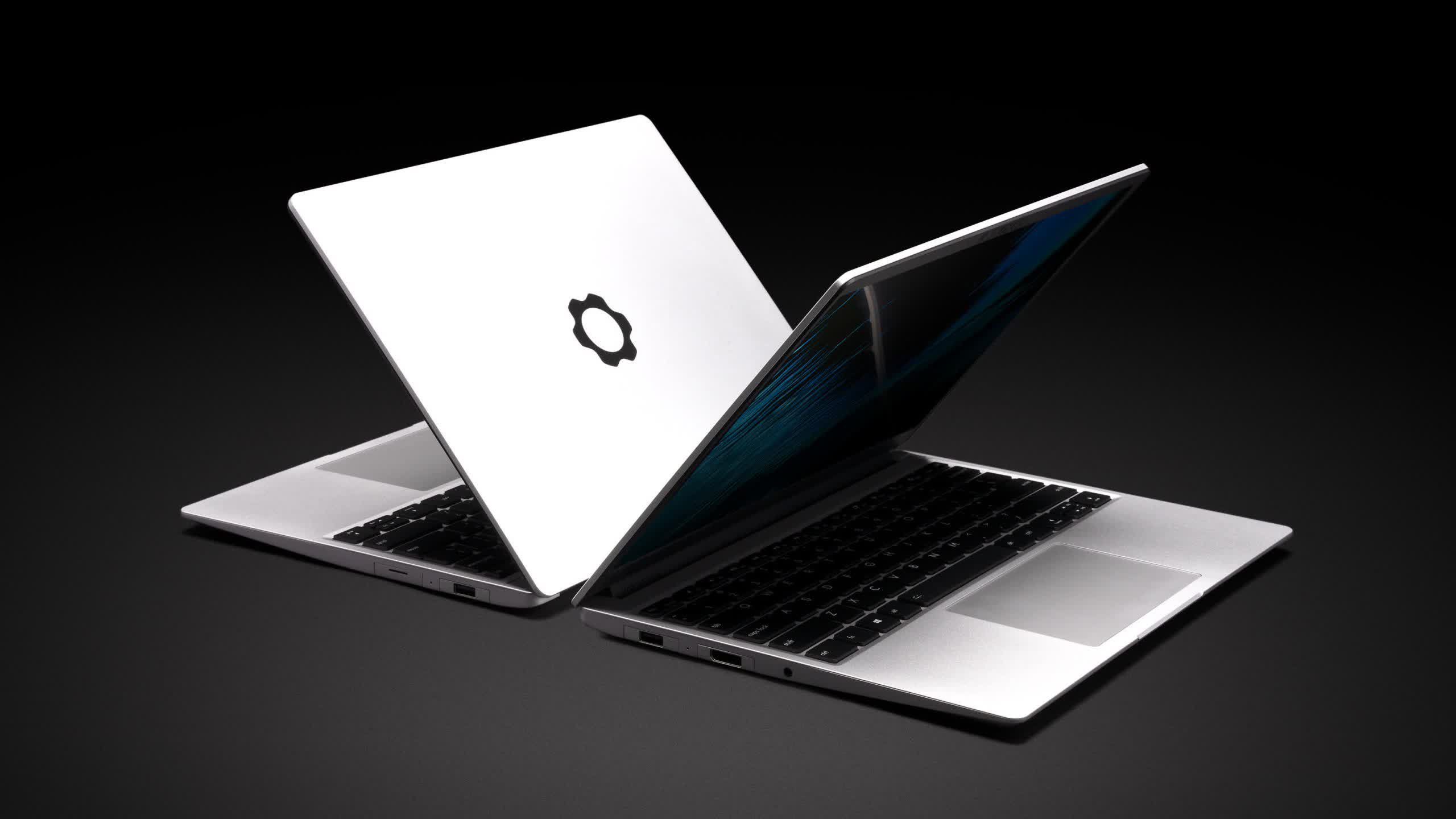Something to look forward to: One of the most significant drawbacks to owning a laptop is the lack of upgradability. Most allow memory or storage replacement, but getting a faster processor means buying a new laptop. Framework hopes to change the status quo with two modular offerings coming this year that will let users swap out CPUs, GPUs, and more.
Framework announced two new entries in its modular laptop series this week. Customers can now pre-order the first--an upgrade to the 13.5-inch 2021 model, which ships in May. The company will reveal more information on the second--a 16-inch build--later this year.
The 2023 Framework 13 expands the selection of available CPUs to include 13th-gen Intel and AMD mainboards. Users can now choose between an i5-1340P, i7-1360P, or an i7-1370P from Intel. Framework also introduces AMD support with two Ryzen 7040 CPUs--Ryzen 5 and Ryzen 7. These newer options don't ship until May but 11th- and 12th-gen Intels are still available from past models.
Framework lets customers hanging onto their 2021 notebooks upgrade to the new processors by buying new motherboards with the CPUs soldered in. They generally range in price between $450 and $1,000. Switching from Intel to AMD requires upgrading the RAM, as the Ryzen 7000 series only supports DDR5.
Other upgrades Framework introduced include a larger 61Wh battery, a matte display kit that maintains good visibility in a broader range of lighting conditions, a new hinge kit for increased screen stability, and an 80dB speaker kit. The hinge kit isn't in stock yet, but the battery is $70 while the matte display is $179 - the same price as the original.

Other upgrades include:
- A larger 61Wh battery
- A matte display kit that maintains good visibility in a broader range of lighting conditions
- A new hinge kit for increased screen stability
- An 80dB speaker kit
The hinge kit isn't in stock yet, but the battery is $70, while the matte display is $179--the same price as the original.
Framework's 16-inch model promises to deliver a long-thought-impossible dream for laptop gamers--upgradeable internal GPUs. The Verge notes that the system's PCIe x8 interface will let users swap out expansion bays from its rear. Protruding outward from the back enables the expansion to bay-escape the physical and thermal limits of the laptop's main chassis.
The company will likely sell the extra graphics cards similar to how it offers CPUs and mainboards, but it would help if Nvidia, AMD, and GPU partners got involved. Framework hasn't said whether graphics vendors will support its efforts.

The expansion bay will support more than just GPUs. An optional M.2 SSD card will give users up to 16TB of storage. The laptop's open-source documentation will also let third parties develop other hardware attachments. Framework suggests ideas like card readers, capture cards, AI accelerators, or SDR radios.
Users can also customize the inputs on the lower half of the Framework 16. The company offers keyboards of different sizes and in multiple languages, including ones with number pads and backlighting. Open-source documentation means other options, like an LED Matrix, haptic slider, jog wheel, touchscreen, e-ink notepad, or smartcard reader, might emerge.
A stand-out feature of the Framework 13 is the expansion card system that lets users swap out side ports like USB, card readers, and more. The 16 increases the number of expansion ports from four to six--three on each side. However, one of those is the headphone jack, introducing the choice to sacrifice it for an additional USB port.
Framework will reveal other details about its 16-inch model, including price and system specs, sometime before it's available later this year.
